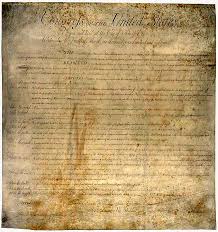
Introduction to the First Amendment
The First Amendment of the United States Constitution is a crucial component of the American legal framework, ensuring fundamental rights such as freedom of speech, religion, press, assembly, and petition. Although Canada has its own legal protections for freedom of expression and individual rights through the Canadian Charter of Rights and Freedoms, the First Amendment remains a significant point of reference in discussions surrounding civil liberties and democracy.
Key Elements of the First Amendment
The First Amendment encompasses five key freedoms: freedom of religion, speech, press, assembly, and petition. This framework prevents the government from infringing on individuals’ rights to express their opinions, practice their faith, gather peacefully, and seek remedies for grievances. Landmark Supreme Court cases, such as New York Times Co. v. United States and Tinker v. Des Moines Independent Community School District, have further clarified and solidified the protections it offers, highlighting its pivotal role in shaping public discourse.
Current Events and Challenges
Recent events in the United States, such as protests against systemic racism and calls for police reform, have spotlighted the ongoing relevance and challenges associated with the First Amendment. In 2023, discussions around social media platforms and their role in moderating speech have reignited debates about the balance between preventing harm and upholding free expression. Notably, legislation has been proposed to address the regulation of online speech, raising concerns about potential infringements on First Amendment rights.
The Significance of the First Amendment
For Canadians, the First Amendment serves as an essential comparative framework for understanding fundamental freedoms. The Canadian Charter guarantees many of the same rights, establishing a separate but related foundation for freedom of expression and assembly. Understanding the First Amendment is vital in appreciating the evolution of rights in North America and fostering dialogues on civil liberties within Canada’s multiethnic society.
Conclusion: Implications for the Future
The First Amendment continues to play a critical role in shaping democratic values and civil rights in North America. As society evolves, the interpretation of these rights will inevitably adapt, influencing legislation and public policy. Observing these developments not only informs Canadians about their rights but also highlights the ongoing global conversation surrounding legal protections for freedom and expression.



